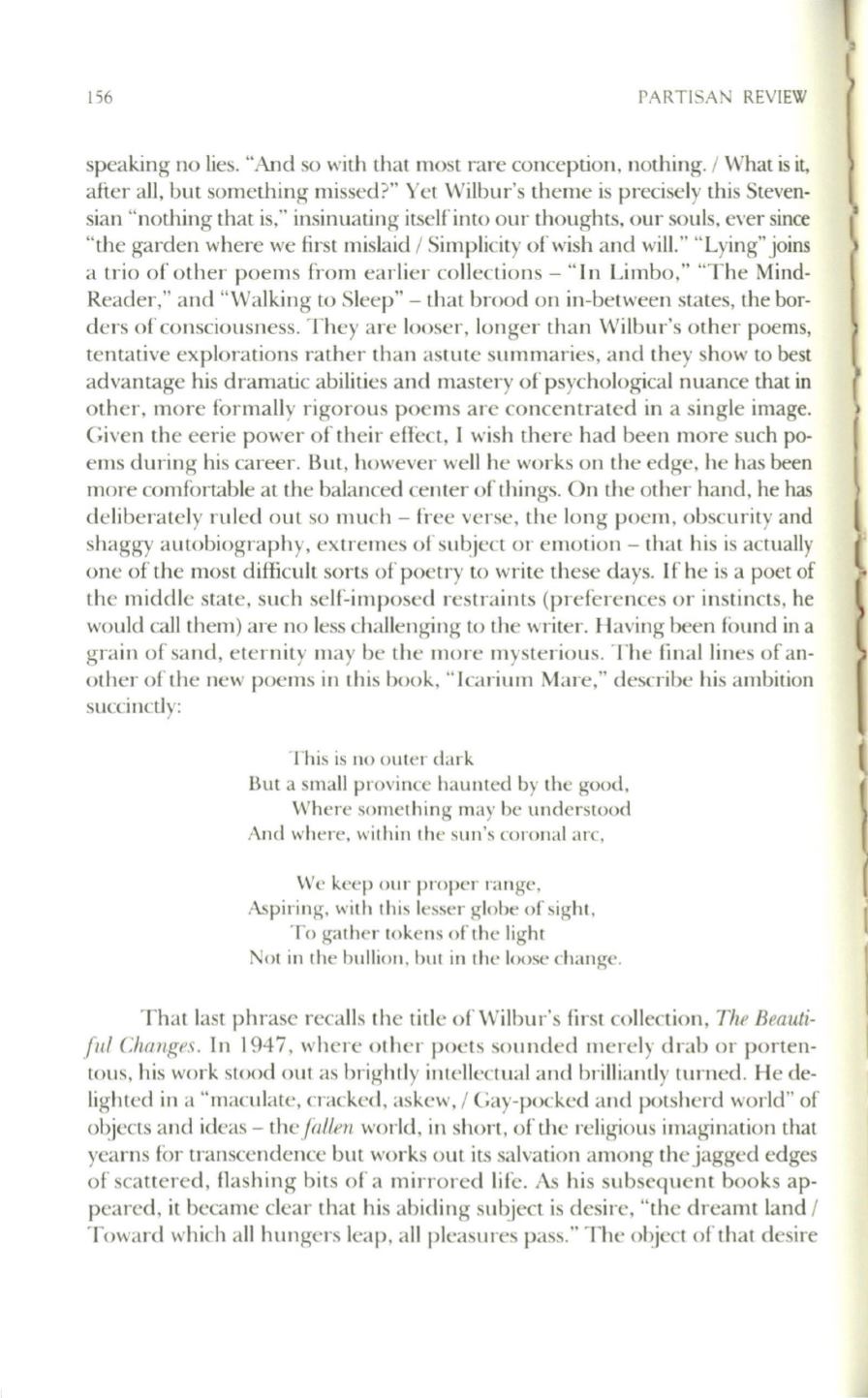
156
PARTISAN REVIEW
speaking no lies. "And so with that most rare conception, nothing. / What is it,
after all, but something missed?" Yet Wilbur's theme is precisely this Steven–
sian "nothing that is," insinuating itself into our thoughts, our souls, ever since
"the garden where we first mislaid / Simplicity of wish and will." "Lying" joins
a trio of other poems £i-om earlier collections - "In Limbo," "The Mind–
Reader," and "Walking to Sleep" - that brood on in-between states, the bor–
ders of consciousness. They are looser, longer than Wilbur's other poems,
tentative explorations rather than astute summaries, and they show
to
best
advantage his dramatic abilities and mastery of psychological nuance that in
other, more formally rigorous poems are concentrated in a single image.
Given the eerie power of their effect, I wish there had been more such po–
ems during his career. But, however well he works on the edge, he has been
more comfortable at the balanced center of things. On the other hand, he has
deliberately ruled out so much - free verse, the long poem, obscurity and
shaggy autobiography, extremes of subject or emotion - that his is actually
one of the most difficult sorts of poetry to write these days. If he is a poet of
the middle state, such self-imposed restraints (preferences or instincts, he
would call them) are no less challenging to the writer. Having been found in a
grain of sand, eternity may be the more mysterious. The final lines of an–
other of the new poems in this book, " lcarium Mare," describe his ambition
succinctly:
This is no outer dark
But a small province haunted by the good,
Where something may be understood
And where, within the sun's coronal are,
We keep om proper range,
Aspiring, with this lesser globe of sight,
To gather"tokens of the light
1
ot in the bullion, but in the loose change.
That last phrase recalls the title of Wilbur's first collection ,
The Beauti–
ful Changes.
In 1947, where other poets sounded merely drab or porten–
tous, his work stood out as brightly intellectual and brilliantly turned. He de–
lighted in a "maculate, cracked, askew, / Gay-pocked and potsherd world" of
objects and ideas - the
fallen
world, in short, of the religious imagination that
yearns for transcendence but works out its salvation among the jagged edges
of scattered, flashing bits of a mirrored life. As his subsequent books ap–
peared, it became clear that his abiding subject is desire, "the dreamt land /
Toward which all hungers leap, all pleasures pass." The object of that desire


